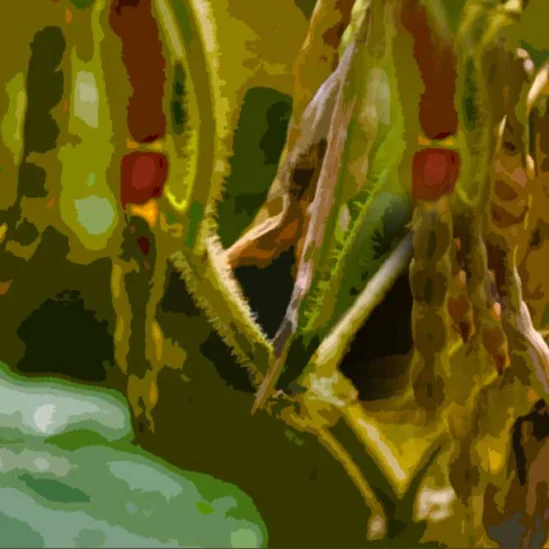Red berries born in the south
Whose branches are full in the Spring
A gentleman wishes you gather many
As a symbol of our love
Wang Wei
Wang Wei (王維, 699–759) is regarded as one of the three most admired poets of the Tang dynasty, the other two being Li Bai and Du Fu. But Wang has the distinction of also being a recognized painter and musician. Rising to the position of Chancellor of the Tang court, he fell in disfavor during the An Lushan rebellion.
What are we to make of this poem?
Surviving the rebellion, and grieving for the death of his wife and sister, he retired to the family estate along the Wang River. I think we may gather that this poem was written there, that it was an epitaph for his dearly beloved wife for whom he still longed.
The title of the poem, 相 思, Xiāngsī, is most often translated as yearning, but it is also the Chinese symbol for love-sickness. Wang fittingly concludes his poem with the same characters to emphasize the emotion. I simplified this to “love” in my translation.
Red, red beans
For some reason Neil Diamond’s silly song Red, Red Wine comes to mind. Its repetitive lyrics are somehow relevant.
“Red, red wine, stay close to me
Don’t let me be alone
It’s tearing apart
My blue, blue heart”
Line one, 紅 豆, hóngdòu, the red berries that Wang refers to are Azuki beans, which make into a red paste commonly used in Chinese treats. Red is a symbol of joy and happiness, but also the color of ink for writing the names of the dead in China. I have found a reference to “red beans” as missing someone. This comes from an ancient story of a Chinese wife who missed her warrior husband. He never returned and she cried tears that watered the ground, hardened into red beans, and grew into vines that produced still more red beans, 紅 豆, hóngdòu.
In China today, red beans still symbolize love and fidelity. So, a husband would be happy and lucky for his loving wife to serve a steaming bowl of red pinto beans.
French
Baies rouges nées dans le sud
Au printemps, les branches sont pleines
Un monsieur, vous souhaite glaner de plus
Symbole de notre amour
Original Chinese
相 思
紅 豆 生 南 國
春 來 發 幾 枝
願 君 多 采 擷
此 物 最 相 思
Pinyin
Xiāngsī
hóngdòu shēng nánguó
chūn lái fā jǐzhī
yuàn jūn duō cǎixié
cǐ wù zuì xiāngsī









